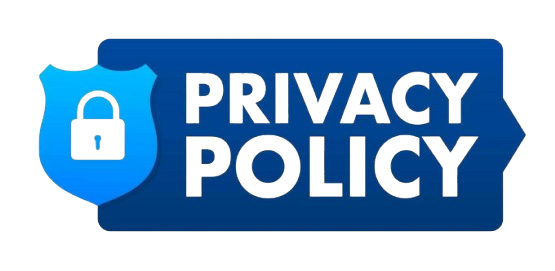POS Codes Specific to Mental Health Billing – State Rules, Teletherapy, and Common Mistakes

In mental health billing, accuracy goes beyond selecting the correct CPT code — it also depends on submitting the appropriate Place of Service (POS) code with each claim. POS codes help payers identify where mental health services were actually provided — whether in an office, school, through teletherapy, or in a hospital-based program. For behavioral health providers, using an incorrect POS code can lead to claim denials, lower reimbursements, or compliance issues. This becomes especially critical for telehealth, where even minor errors can have major financial consequences.
Understanding how POS codes apply to therapy, psychiatry, behavioral health programs, and school-based counseling is essential for maintaining billing accuracy and payer compliance. This article focuses exclusively on mental health–specific POS codes, state variations, and the most common coding mistakes that affect behavioral health providers
How POS Codes Affect Mental Health Claims
For the complete list of all POS codes, see our Place of Service Codes Guide. The table below highlights how selected POS codes directly influence reimbursement and compliance in mental health billing.
| POS Code | Mental Health Service Environment | Typical Use Case | Therapy Example |
|---|---|---|---|
| POS 02 | Teletherapy Outside the Patient’s Home | Live video sessions when the client connects from a school or community site | Telepsychiatry from a counseling center |
| POS 10 | Teletherapy in the Patient’s Home | Virtual psychotherapy conducted from the patient’s residence | CBT session from home |
| POS 03 | School Setting | Counseling under an IEP or behavioral plan | On-site school therapy |
| POS 49 | Independent Clinic | Outpatient care in a private or community clinic | Group therapy at an MH clinic |
| POS 53 | Community Mental Health Center | Federally certified CMHC services | Crisis evaluation or medication management |
💡 Tip: Ensure your POS code matches the CPT code and modifier on the claim form (whether UB-04 or CMS-1500/HCFA). For practices offering both in-person and virtual sessions, maintaining an internal POS reference sheet helps ensure clean, timely claim submission.
State Variations in Mental Health POS Codes
While POS codes are nationally standardized, each state’s Medicaid and commercial payer rules interpret them differently — especially for teletherapy, school-based, and community mental health services.
Texas
Texas Medicaid applies distinct POS rules for teletherapy and behavioral health services, often differentiating between sessions provided at home versus in other approved locations such as schools or clinics.
📌 Read our Texas Mental Health Billing Services guide for details on TMHP and MCO telehealth compliance.
California
Medi-Cal enforces strict documentation for POS codes in school-based counseling and community behavioral health programs. Teletherapy conducted in school or off-site settings must align with state-specific authorization criteria.
📌 Explore California Mental Health Billing Services for a detailed Medi-Cal compliance overview
Florida
Florida Medicaid and AHCA apply clear distinctions between home-based teletherapy, clinic-based sessions, and community behavioral health programs.
📌 Learn more in our Florida Mental Health Billing Services resource
New York
New York Medicaid requires precise POS coding for teletherapy and mobile behavioral health programs. Providers offering remote or outreach-based services must maintain supporting documentation of service delivery sites.
Illinois
Illinois Medicaid supports teletherapy and school-based counseling when documented under authorized programs. Rules for telephonic sessions vary by payer and may require specific compliance flags.
Pennsylvania
Pennsylvania Medicaid applies detailed POS distinctions for nursing facility mental health, community mental health centers, and teletherapy programs.
Pro Tip: If you serve clients across multiple states, maintain a state-by-state POS code checklist for quick reference to maintain accuracy
Teletherapy POS Codes and Modifiers in therapy Billing
Telehealth continues to redefine therapy and psychiatry delivery models — but selecting the correct Place of Service (POS) code remains crucial for smooth mental health billing and accurate reimbursement. In behavioral health, correct POS selection helps payers distinguish between home-based teletherapy and remote sessions delivered elsewhere.
How POS Codes Apply to Teletherapy Sessions
In teletherapy, two POS codes determine where the client is located during a virtual session:
POS 02 – Teletherapy Outside the Patient’s Home
Used when the patient connects from a non-residential site such as a school, counseling center, or community clinic.
POS 10 – Teletherapy in the Patient’s Home
Used when the therapy session occurs from the patient’s home, such as during virtual CBT or psychiatry follow-up sessions.
Teletherapy Modifiers
Most teletherapy claims require a modifier to indicate how the service was provided (video, audio-only, etc.). For detailed examples and payer variations, visit our Modifiers in Mental Health Billing guide
MENTAL HEALTH POS CODING Mistakes and Way Forward
Even experienced billers make errors with Place of Service (POS) coding — especially when mental health teletherapy and state-specific rules are involved. These oversights often lead to denials, delayed payments, or compliance flags. Here’s how to avoid them.
1. Applying the Wrong Teletherapy
🚫 The Mistake: Using the same POS code for all teletherapy sessions, regardless of where the client is located.
⚠️ The Risk: Claims may be rejected if the POS does not reflect whether the session occurred from the client’s home or another authorized site.
✅ The Fix: Always select the POS based on the patient’s physical location during the virtual session.
📌 Reference: Telehealth Codes in Medical Billing
2. Omitting Required Modifiers
🚫 The Mistake: Submitting the correct POS but leaving out the telehealth modifier.
⚠️ The Risk: Payers may process the session as an in-person visit, reducing reimbursement.
✅ The Fix: Consult payer guidelines to determine when a modifier is required.
📌 Learn more in: Modifiers in Mental Health Billing
3. Overlooking State-Specific POS Rules
🚫 The Mistake: Assuming national POS standards apply to all payers.
⚠️ The Risk: Medicaid and commercial rules differ widely by state, leading to mismatches or denials.
✅ The Fix: Create state-specific SOPs for your billing staff.
📌 Quick Reference: Mental Health Billing Services by State
4. Mixing Facility and Non-Facility Settings
🚫 The Mistake: Reporting an office-based POS when the service actually occurred in a facility-based setting.
⚠️ The Risk: Payers may reprice the claim or initiate a compliance audit.
✅ The Fix: Always align the POS with the actual care environment — outpatient facility, clinic, or community program.
📌 Related Reading: Place of Service Codes Guide
5. Using Outdated POS Guidelines
🚫 The Mistake: Continuing to follow temporary pandemic-era billing rules.
⚠️ The Risk: Many payers have reverted to standard POS and telehealth policies, causing preventable denials.
✅ The Fix: Regularly monitor payer bulletins and update your POS usage policies at least quarterly.
📌 Reference: Telehealth Codes in Medical Billing
Conclusion
Accurate Place of Service (POS) coding is a cornerstone of effective mental health billing — not just for compliance, but for minimizing denials, accelerating reimbursements, and maintaining steady revenue flow.
For therapists, psychiatrists, and behavioral health providers, correct POS coding ensures each claim aligns with payer-specific and state-level requirements, preventing underpayments and costly rework.
At Medstates, we specialize exclusively in mental health billing services, helping practices implement robust POS coding protocols that reduce denials and strengthen payer compliance. Our billing experts understand the nuances of behavioral health CPT codes, teletherapy claims, and Medicaid documentation, ensuring every claim meets the highest accuracy standards.
📌 Ready to improve your claim success rate?
Schedule your free consultation today to learn how our Mental Health Billing Services and Credentialing Services for Mental Health Providers can help your practice achieve precise POS coding, cleaner claims, and faster payments.


